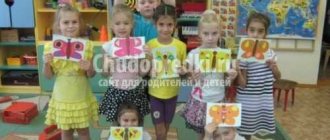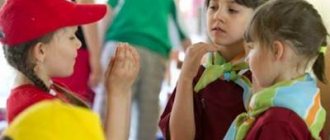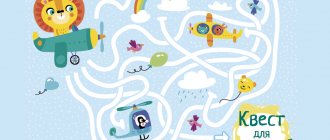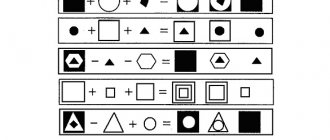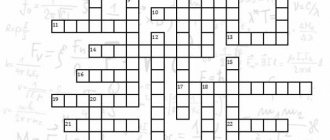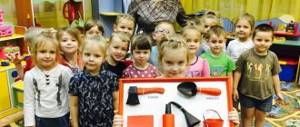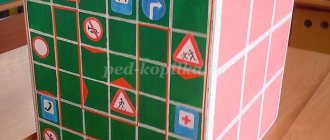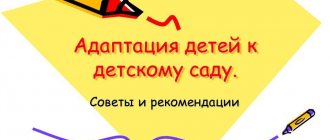When planning a children's party, the easiest option is to turn to people who professionally organize holidays. They will offer you a lot of options, various types of entertainment, among which quests are especially popular today.
A quest is a chain of tasks related to each other by some theme or a common goal.
It is not surprising that children are delighted with quests, because they so love to solve mysteries, go to the goal and receive such a coveted prize as a result.
But to arrange an exciting quest, you don’t have to contact anyone. Using ingenuity and imagination, any parent can write a script for their own special quest, which will be compiled taking into account the hobbies and interests of your child. And such a quest will be even more valuable, because you have put your soul into it, and even more interesting, because who, if not you, knows how to interest your own child.
To create a scenario, you will need tasks for a quest for children. Let's look at different options for children's tasks, by putting them together, you can create your own unique scenario.
Secret letter
To read it, you need to do certain things with it. Examples of such a letter:
- inscription with milk. Appears when heated. To do this you will need matches or a lighter, so this task should not be given to children. But even if you are doing a quest for schoolchildren, at this stage it is advisable for the participation or at least the presence of an adult for safety reasons.
- wax candle or chalk. The paper with the hint must be painted over with a pencil so that the inscription appears. An excellent safe option for the task.
- pressed inscription. We take two sheets of paper, place them on a soft surface and write the message so that it is imprinted on the bottom sheet. This will be our secret letter. To read the inscription, it must be painted over, just like in the previous version.
Preparing a quest for schoolchildren aged 8–11 years
The form and content of the game on the theme of Victory Day for schoolchildren in grades 1–5 differ from the structure of quests for older preschoolers in terms of duration and complicated tasks. And also an assessment of the team’s work at each stage of the game - the totality of these results forms the overall outcome of the quest.
Plot options
Storyline ideas for children 8–11 years old:
- “Dear Wars...” - teams (can be from different classes) go through stations with tasks according to their route sheet, for successful completion they receive a puzzle element at each point, put together a picture, say what is shown on it, and also give other known information ( for example, the guys put together fragments of the photograph “Victory Banner over the Reichstag”; if they know it, they name its author - Soviet war correspondent E. Khaldei);
- “Saboteurs” - a team (students of the same class) searches for a map of the location of rival troops, completing tasks along sections of the route (the essence is the same as passing stations, but the quest is aimed at one group of children, and not at teams);
- “Liberators” - a group of participants performs tasks to rescue a captive military leader (his role is played by a teacher or parent).
For children in grades 1–5, the quest is based on knowledge about the Second World War and Victory Day obtained during preliminary work: explanations from the teacher, parents, excursions to war monuments
Database of materials for schoolchildren aged 8–11 years
The composition of the quest for students in grades 1–5, in addition to the types of tasks described for preschoolers, includes:
- coming up with a name and motto for the team, choosing a captain;
- creating rebuses (for example, if two teams participate in a quest, then one of the tasks can be to come up with an anagram rebus for each other, for example, from two words to create a third on a military theme - ring + zone = garrison);
- answers to quiz questions.
Games for younger schoolchildren must include the singing of war songs. The wording of the task could be as follows: “Choose from the three proposed songs the one you like best, and perform it to the accompaniment of a music teacher or to the “minus.”
Options for names and mottos for teams
Teams can use the following names and mottos:
- “Landing”: We are landing and it’s cool! Let's beat anyone in the game!
- “Border Guards”: Not a single violator nearby - the Border Guard will protect you as it should!
- “Heroes”: I’m glad to welcome you, Our squad of heroes! We firmly know victory, and we will not yield to anyone!
- “Motherland”: Whoever is faithful to the Motherland and exemplary in battle, Let everyone know, Always wins!
- “Patriot”: We always move forward, After all, we are a team - Patriot! Dexterous and brave, we will do everything for victory!
Poems and riddles
Poetic lines in quests for school-age children are usually a kind of introductory word before the start of the game. In addition to the presentation of the name and motto. For example, these:
- Guys, I was at war, I went into battle, I burned in fire. Freezing in the trenches near Moscow, But, as you can see, he’s alive. Guys, I didn’t have the right to freeze in the snow, to drown at the crossings, to give my home to the enemy. I had to come to my mother, grow bread, mow the grass. On Victory Day, together with you, See the blue sky. To remember everyone who died in a bitter hour and saved the earth... This is what I’m talking about today, guys: We must take care of the Motherland in a holy soldier’s way! (V. Stepanov);
- Grandma put on the medal and now she’s so beautiful! She celebrates Victory Day, remembering the great war. Grandma's face is sad. There is a soldier's triangle on the table. Grandfather’s letter from the front is very painful for her to read even now. We look at grandfather’s portrait and shake hands with my brother: “Well, what kind of grandfather is this?” He's still just a boy! (V. Turov);
- The beauty that nature gives us was defended by soldiers in the fire, May Day of 1945 became the last point in the war. For everything that we have now, For each of our happy hours, For the fact that the sun shines on us, Thanks to the valiant soldiers - Our grandfathers and fathers. It’s not for nothing that fireworks sound today in honor of our Fatherland, in honor of our soldiers! (A. Surkov).
As for preschoolers, riddles for children 8–11 years old can form the basis of one of the stages of the quest:
- Breathes fire, bursts with flame. (A gun);
- If it flies, it barks, if it falls, it crumbles. (Projectile);
- It doesn’t look like a cannon, but God forbid it fires. (Mortar);
- There is a turtle standing - a steel shirt, the enemy is in the ravine - and where is the enemy. (Tank).
Questions on the topic
The selection of questions can be focused on the level of general knowledge of children on military topics. For example, give an answer to a riddle question (can be organized as a blitz, for which 1 minute is allocated):
- unexpected command (alarm);
- soldier's socks (foot wraps);
- ship's kitchen (galley);
- soldier's prison (guardhouse);
- news from home (letter);
- Every simple soldier (general) dreams of becoming one;
- ship's cook (cook);
- soldier's coat (overcoat);
- non-negotiable (order).
Questions can also be of a general nature:
- When did the Second World War begin and end?
- What was the name of our Motherland during the war?
- Which state attacked our country?
The final stage of the quest is the task of folding a letter from the front in the shape of a triangle
Games for schoolchildren aged 8–11 years
The game block is focused more on outdoor games, so either the entire quest should be carried out outside, or some part of it.
Table: examples of games for quests for children 8–11 years old
| Name of the game | Equipment | Rules |
| Didactic games | ||
| "Find 10 differences" | Paired pictures |
|
| Puzzles | Thematic pictures, cut into 10–12 parts. | Children, by command or temporarily, put together a puzzle to move on to the next stage. |
| Outdoor games | ||
| “Obstacle course” (on the street or in the gym) | Children overcome a wall (a loophole on the playground), use a rope to cross a swamp (mats), along a log, snake between the wheels, etc., depending on what is available on the playground. | |
| "Sniper" |
|
|
| "Forced March" | Two bags with cargo |
|
Photo gallery: materials for the game “Find the Differences”, puzzles and rebuses
A puzzle with an Eternal Flame-star can be put together even by children in the middle group, since the symmetrical details of the picture make it easier and, therefore, speed up the game process significantly
To complicate the task, you can ask children to name the main features of each type of equipment.
If the picture contains close-ups of people, the number of fragments may be greater
Pictures with explosions and battles should not be cut into many elements - the plot is already complex, there is no need to “complicate” it even more
There are 17 differences in this picture.
The captain can voice the answers to the puzzle
How to write a quest script
Having selected material suitable for the topic, the teacher organizes the tasks in the sequence necessary to implement the idea. For example:
- solving arithmetic problems;
- outdoor games;
- guessing riddles;
- folding the puzzle.
Examples of quest scenarios
The completion of tasks at stations is assessed by the head of this particular stage. You can get acquainted with the principles of evaluating children's answers in the development of Savchuk A.V. “On the roads of the Great Patriotic War...”. This scenario also includes a dramatization task: children are taught the role they need to play in the proposed circumstances. For example, a soldier needs to get to the headquarters to convey a report from the center.
Original tasks at stations (for example, solving anagrams) can be found in the script by L.I. Makarova. “The game is a quest dedicated to the Great Victory.” The script can include blocks or individual tasks on the history of the native land during the Second World War. An interesting option for implementing this educational component in the context of Novosibirsk is presented in the script by V. I. Orlova “I remember! I'm proud!".
Video: quest for Victory Day for children 8–11 years old
Quiz
One or more questions, after solving which, participants receive a hint. It is advisable that the quiz questions be united by one topic. These can be phrases from fairy tales, from which you need to guess the fairy tale itself.
More quiz options:
- we take several objects or pictures, we need to guess which movie or cartoon these objects are from;
- Geographic quiz - guess countries, cities;
- quiz with questions about animals, birds or insects;
- a quiz with questions about household appliances or any items used in everyday life.
If the quest is carried out with schoolchildren, the quiz can be dedicated to any subject that they study at school. In this case, the task will be not only exciting, but also useful.
What is a quest
This is a popular form of holding a themed party today, the goal of which is to achieve the set goal through step-by-step completion of various kinds of tasks, including answering quiz questions, solving puzzles, puzzles, and performing physical exercises.
The quest differs from other events on a military-patriotic theme:
- a variety of game material - to solve a game problem (often a search for an important report, a map of the location of enemy troops), the children complete tasks of an intellectual quiz, alternating them with sports competitions;
- dynamic - the quest for children involves team competition or completing tasks against a time limit, so the speed of solving game problems is decisive for the successful completion of the game (participants do not have time to get bored, because receiving the next task is possible only after completing the previous one, moreover, usually children cannot even assume the nature of the new game task);
- wider opportunities to express oneself - when forming a team, you need to gather players with different abilities, and not just with good physical fitness, as, for example, for the game GZR, or with a high level of intelligence, as, for example, for thematic quizzes, brain ring ;
- multi-stage achievement of the goal - for example, after completing all the tasks, the team receives fragments of the question, and not the whole question, and only by correctly adding all the elements and answering faster than the opposing team can we talk about victory.
For children of any age, the quest means an exciting adventure
General assignment rules
Here we have selected only the main variants of tasks, you can take them as a basis or come up with your own, but you must follow several rules:
- All tasks should not be dangerous. You cannot force a child to swim across a river or light a fire;
- the problems must be age-appropriate for the participants to actually solve them. But at the same time, they should not be too simple;
- the stages of the quest should be united by one theme, smoothly transition into each other, and be built in a logical chain;
- at the end there should be a prize waiting for the participants, and it should be such that no one is offended. If the game is a team game, then the prize should be for the whole team. If desired, you can give small prizes at each stage of the passage.
We hope that our tips will help you and you will organize your own original and exciting children's quest!
Video on the topic:
Preparing a quest for children 12–15 years old
The main difference between quests for children of this age is that before the event, preparatory work must be done in the classroom or at home. In the process of preliminary study of the topic, children can learn about important events of the Second World War. For example, a list of Hero Cities, names of the main battles, dates of the siege of Leningrad, names of commanders-in-chief, etc.
According to the Federal State Educational Standard, topics related to the study of the Second World War are included in the Russian history program starting from the 9th grade.
As for the location of the quest, most often it is one thing: either a room (school) or a street (sports ground, park). In the first case, the tasks are more in the nature of a quiz, in the second - a military sports game. And since today the holding of military-patriotic sports games “Zarnitsa” and “GZR” is a traditional event in many schools, the quest is most often organized in the format of an intellectual game.
Plot outline ideas for a quest with teenagers aged 12–15 years
Legends for the quest can be like this:
- “Dear Liberators” - the guys, completing tasks, “liberate” a city or region, that is, each solved game task is the “defeat” of the fascists;
- “A trip to the Hero Cities” - participants complete tasks related to military events in the Hero Cities, in each city the guys receive a fragment of a key (for example, a word from a song), the goal is to collect a text from the fragments;
- “Scouts” - the guys complete tasks, receiving a fragment of the key with the final task, the solution of which is the goal of the game (decipher the names of key figures in the Soviet army).
Bank of materials for the quest
The quest for children aged 12–15 is based on knowledge of historical material.
Questions on the topic
The block of erudition questions is designed to test the children’s general level of knowledge on the topic. For students in grades 6–9, it is decisive.
- Which Hero City is presented in the photo (Brest, Stalingrad, Kyiv, Leningrad, Moscow, Odessa, Sevastopol, Kerch, Novorossiysk, Minsk, Tula, Murmansk, Smolensk).
Answer: Brest
- What made N.F. famous? Makarov, M.T. Kalashnikov, V.A. Degtyarev? (They were the inventors - N.F. Makarov - a pistol, M.T. Kalashnikov - an assault rifle, V.A. Degtyarev - a machine gun).
- What was the popular nickname for the guards mortar “BM-13” during the Great Patriotic War? ("Katyusha").
- Which tank was considered the best during World War II? (T-34).
In the quest, one of the stages of achieving the goal may be the task of deciphering proverbs and sayings on the topic of war and the army.
As an erudition task, ninth-graders can be asked to take a short test on their knowledge of basic facts about the Second World War.
The intellectual block can be composed in the form of the “Victory Alphabet”: a riddle question is created for each letter of the alphabet. For the scenario, you can take several questions, from the first letters of the answers to which an encrypted word is formed. For example, the word “victory”:
- this branch of the army was called the queen of the fields (infantry);
- award (order);
- it happens hand-to-hand (combat);
- anti-tank barrier (hedgehog);
- what should be ironclad in the army (discipline);
- this branch of the army was called the god of war (artillery).
Riddles can be distributed among points in other stages of the quest, so that children receive “letters” one at a time.
Games
The following tasks can be included in this block:
- “Identify a Hero” - the guys connect the portrait of USSR marshals with their names;
- “Assemble the puzzle” (for this task you can take a portrait of Marshal A.M. Vasilevsky);
As a child, the future Marshal Alexander Mikhailovich Vasilevsky dreamed of becoming an agronomist or land surveyor
- “Fold a red cross” (participants need to fold a cross from scraps without making any cuts).
Photo gallery: materials for the games “Identify the Hero” and “Fold the Red Cross”
In the post-war years, Marshal Georgy Konstantinovich Zhukov received the popular nickname “Marshal of Victory”
Marshal Rodion Yakovlevich Malinovsky was the only major Soviet military leader of the Great Patriotic War who spoke several European languages fluently
Konstantin Konstantinovich Rokossovsky is the only marshal of two countries in the history of the USSR: Marshal of the Soviet Union and Marshal of Poland
Elements for the red cross can be made from paper
Children can fold a cross as a team or choose 2-3 people for this task
Quest scenarios for teenagers
In the game for children aged 12–15 years, questions related to famous monuments dedicated to the Second World War can be included in erudition tasks. An interesting version of the wording of the task is presented in the script by Shutova E.A. “On the roads of the Great Patriotic War...”.
The game can be organized in the format of a “double” quest: in order to receive the task indicated in the route sheet, children must use the clues to determine the place where to find it, or the person who will voice this task. Moreover, each team has its own hints. This version of the quest is presented in the development of N.S. Zhirova. "On the roads of the Great Patriotic War."
The goal of the quest for teenagers may not be related to the “Victory Day” theme, provided that all tasks are based on it. So, in the script “All Inclusive” by M.N. Sokolova. The guys, completing assignments on the topic, get the password for the school Wi-Fi and earn an “A” in history.
The quest can be organized so that children have the opportunity to take 1-2 tips from the leader in case of difficulties in completing the task. And after solving a game problem, participants receive not only the key to the next stage, but also part of the key to completing the final task. An example of such an organization of the game can be found in the script by O.S. Kantonistova. “Quest for Victory Day”, based on materials from the history of his native land (Kaliningrad region) during the Second World War.
A carefully thought out and organized example of a quest in the park could be the scenario of Alekseevich E.I. “Great victories of a great people”: participants move along the route to the Hero Cities, complete a task there, receive a hint, with which they go to the organizers for further instructions.
Outdoor quest for teenagers and youth
A quest for teenagers may contain intellectual and sports tasks. Dilute the game, which will take place on the street, with tasks for dexterity and ingenuity so that the participants do not get bored. Options for tasks for a youth quest can be as follows:
"Bring some water"
Participants are divided into two teams and given plastic buckets. The players' task is to transfer water from one container to another. The team that completes the task first receives an intermediate prize. To make the task more difficult, players must carry water in a yoke (ropes are attached to the two ends of the stick, from which buckets are hung). Another fun version of the task: participants stand one after another, each holding a bucket. The first player pours water over his back, trying to get into the bucket of the participant who is standing behind him.
"Skiing"
In summer, skiing on grass is not the easiest task. You can come up with the original text of the note:
“You need to get into the very heart of the cave, but this can only be done with the help of two wooden sticks, because the gorge is blocked with snow.”
You can make skis for several participants. To do this, ropes are attached to two bars, which the players will hold on to. Two or three participants get on “skis” and cover the distance.
"Three-legged monster"
Two participants stand next to each other. The right leg of one participant and the left leg of the second player are tied with a rope. Players can now participate in the relay race.
The option with a “three-legged monster” is suitable for a quest in which children and parents participate. Team assignments will help bring children and parents together.
"Air balloons"
Participants must cover the distance with balls held between their legs. If the ball bursts or flies away, the player is eliminated. Another version of the task is to line up and place the balls between the players.
"Tug of War"
Another sports competition. Two participants stand on a stand (plastic or wooden boxes can be used). The players, at the command of the leader, begin to tug of war. The one who leaves the stand loses.
"Move the Eggs"
Players are given spoons and chocolate or regular eggs. Their task is to transfer the egg in a spoon without dropping it. A simple but very fun game for young people.
"Turning into a giant"
Tasks should not only be active, but also fun. Teams choose the thinnest participants, who wear large-sized clothes. The players' task is to fill their clothes with a large number of balloons. As a result, the participants turn into “marshmallow men”. A funny, cheerful task that will cheer up all participants in the game. After all the balls have been used, you can arrange a battle of giants like sumo.
“Moving the ball with water”
Participants are given water pistols and a large inflatable ball. Teams must use the force of a jet of water to move the ball to the final point.
"Working with your head"
Tights with a ball in the sock are put on the participants' heads. The player must tilt his head and try to knock down the pins with the ball. This unusual, funny competition will surely appeal to teenagers.
For children aged 12 years and older, in the quest you can come up with riddles with a trick:
- It's pouring rain. Everyone goes without umbrellas. Who doesn't get their hair wet? (Bald man).
- 5 bulls produced 20 liters of milk. How much milk does 1 bull produce? (Milk is provided by cows, not bulls).
- What do you need to do to catch a tiger in a cage? (There are no such tigers, there are only striped ones).
- The person guessed the score before the match started. How did he do it? (Before the start of the game the score is always the same – 0:0).
- Can a horse jump over a horse? (Maybe in chess).
